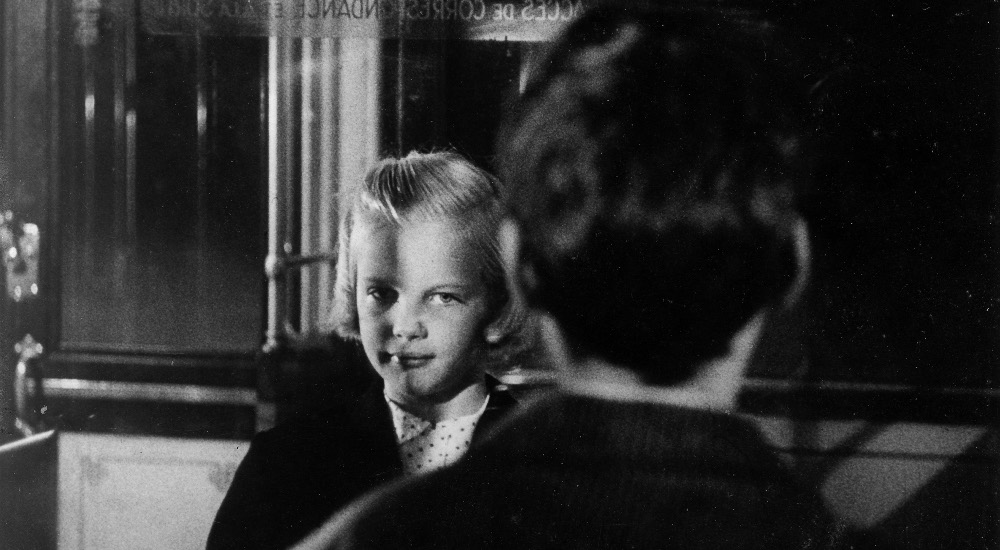Georges Franju: Beyond Reality

Programma curated by Bernard Eisenschitz
Two fundamental experiences marked Georges Franju’s life (1912-1987) before he made his first 1948 short film: he had founded the Cinémathèque française together with Henri Langlois and he had been appointed secretary to the FIAF (International Federation of Film Archives). In addition, his love for the art of silent cinema and his passion for the 1930s had informed his film language and his determination of style. His films all betray those qualities, combining the hallmarks of the German School and the legacy of Louis Feuillade.
Franju had also worked alongside Jean Painlevé for 12 years, first at the Cinémathèque scientifique française and then at the Institut cinématographique scientifique. This experience had left him with an entirely conscious habit of focusing on the relationship between cinema and fear (mentioned many times in his filmed interviews with André S. Labarthe). “The strange”, he said, “is the familiar, seen in a new light”.
Franju started making films after the war, just three years after the opening of German concentration camps had been revealed to the world via cinema newsreels. Le Sang des bêtes breaks a taboo: the representation of real death.
As French film production entered its doldrums, many generations of filmmakers turned to shorts, from Jean Grémillon (born 1901) to Agnès Varda (born 1929), including Alain Resnais, Chris Marker, Pierre Kast, Roger Leenhardt and many other unjustly forgotten names. Like so many at that time, Franju produced a remarkable body of work before shooting his first feature: thirteen shorts in 11 years, already earning him from some the qualification “greatest filmmaker in France”.
Almost all these shorts were commissioned work. Franju would take each commission at face-value without subverting it; he always stuck to the rulebook. “Working with Painlevé”, as he told Serge Daney, “steeped me in a certain approach to the real, documentary reality”. So he kept in tune with his age, that in-between time from the liberation to forebodings of an atomic death. His films tell of the banality of mass murder (Le Sang des bêtes), the underside of war (Hôtel des Invalides), science and death (Monsieur et Madame Curie), the destruction of the past (En passant par la Lorraine) and the threatened destruction of the planet (Les Poussières), not to mention illusion, tragedy and dream life (Le Grand Méliès, Théâtre National Populaire and La Première Nuit). Franju’s work investigates his own epoch, finding anxiety, horror and enchantment at every turn. “I am a realist, therefore a surrealist”.
Bernard Eisenschitz
Program
Saturday 22/06/2019
12:00
Cinema Modernissimo
Notre-Dame, Cathédrale de Paris
Notre-Dame, Cathédrale de Paris
Cecilia Cenciarelli, Mariann Lewinsky, Ehsan Khoshbakht e Gian Luca Farinelli
Tuesday 25/06/2019
17:15
Cinema Lumiere - Sala Officinema/Mastroianni
16mm / Le grand Méliès / L’affaire Dreyfus
16mm / Le grand Méliès / L’affaire Dreyfus
Stephen Horne
Wednesday 26/06/2019
16:30
Cinema Lumiere - Sala Officinema/Mastroianni
Le Sang des bêtes / La Première nuit / Le Métro
Le Sang des bêtes / La Première nuit / Le Métro
Bernard Eisenschitz
Thursday 27/06/2019
16:30
Cinema Lumiere - Sala Officinema/Mastroianni
Hôtel des Invalides / Monsieur et Madame Curie / Mon chien
Hôtel des Invalides / Monsieur et Madame Curie / Mon chien
Saturday 29/06/2019
16:30
Cinema Lumiere - Sala Officinema/Mastroianni
EN PASSANT PAR LA LORRAINE / Les Poussières / Le Théâtre National Populaire


